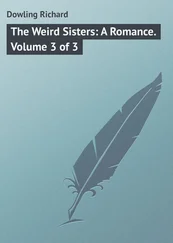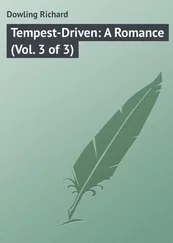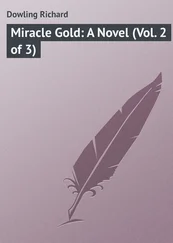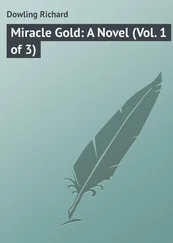Richard Dowling - Ignorant Essays
Здесь есть возможность читать онлайн «Richard Dowling - Ignorant Essays» — ознакомительный отрывок электронной книги совершенно бесплатно, а после прочтения отрывка купить полную версию. В некоторых случаях можно слушать аудио, скачать через торрент в формате fb2 и присутствует краткое содержание. Жанр: foreign_prose, на английском языке. Описание произведения, (предисловие) а так же отзывы посетителей доступны на портале библиотеки ЛибКат.
- Название:Ignorant Essays
- Автор:
- Жанр:
- Год:неизвестен
- ISBN:нет данных
- Рейтинг книги:4 / 5. Голосов: 1
-
Избранное:Добавить в избранное
- Отзывы:
-
Ваша оценка:
- 80
- 1
- 2
- 3
- 4
- 5
Ignorant Essays: краткое содержание, описание и аннотация
Предлагаем к чтению аннотацию, описание, краткое содержание или предисловие (зависит от того, что написал сам автор книги «Ignorant Essays»). Если вы не нашли необходимую информацию о книге — напишите в комментариях, мы постараемся отыскать её.
Ignorant Essays — читать онлайн ознакомительный отрывок
Ниже представлен текст книги, разбитый по страницам. Система сохранения места последней прочитанной страницы, позволяет с удобством читать онлайн бесплатно книгу «Ignorant Essays», без необходимости каждый раз заново искать на чём Вы остановились. Поставьте закладку, и сможете в любой момент перейти на страницу, на которой закончили чтение.
Интервал:
Закладка:
If instead of taking the whole of this imaginary skin off the optic nerve, we simply injure it ever so slightly, the nerve may become alive to some of these spirits; and this premature perception of what is around all of us, but perceived by few, we call seeing ghosts. It may be objected that all space is not vast enough to afford room for such a stupendous panorama. When we begin to talk of limits of space to anything beyond our knowledge and the touch of our inch-tape, we talk like fools. There is no good in allotting space with a two-foot rule. It is all the same whether we divide zero into infinity or infinity into zero. The answer is the same; “I don’t know how many times it goes.” Take a cubic inch of air outside your window and see the things packed into it. Here interblent we find all together resistance and light and sound and odour and flavour. We must stop there, for we have got to the end, not of what is packed into that cubic inch of air, but to the end of the things in it revealed to our senses. If we had five more senses we should find five more qualities; if we had five thousand senses, five thousand qualities. But even if we had only our own senses in higher form we should see ghosts.
If the third skin were removed from the optic nerve all things we now call opaque would become transparent, owing to the naked nerve being sensitive to the latent light in every body. The whole round world would become a crystal ball, the different degrees of what we now call opacity being indicated merely by a faint chromatic modification. What we now regard as brilliant sunlight would then be dense shadow. Apocalyptic ranges of colour would be disclosed, beginning with what is in our present condition the least faint trace of tint and ascending through a thousand grades to white, white brighter far than the sun our present eyes blink upon. Burnished brass flaming in our present sun would then be the beginning of the chromatic scale descending in the shadow of yellow, burnished copper of red, burnished tin of black, burnished steel of blue. So intense then would the sensibility of the optic nerve become that the satellites attendant on the planets in the system of the suns, called fixed stars, would blaze brighter than our own moon reflected in the sea. To the eye matter would cease to be matter in its present, gross obstructive sense. It would be no more than a delicate transparent pigment in the wash of a water-colour artist. The gross rotundity of the earth would be, in the field of the human eye, a variegated transparent globe of reduced luminousness and enormous scales and chords of colour. The Milky Way would then be a concave measureless ocean of prismatic light with pendulous opaline spheres.
The figures of dreams and ghosts may be as real as we are pleased to consider ourselves. What arrogance of us to say they are our own creation! They may look upon themselves as superior to us, as we look upon ourselves as superior to the jelly-fish. No doubt we are to ghosts the baser order, the spirits stained with the woad of earth, low creatures who give much heed to heat and cold, and food and motion. They are the sky-children, the chosen people. They are nothing but circumscribed will wedded to incorporeal reasons of the nobler kind, and with scopes the contemplation of which would split our tenement of clay. They are the arch-angelic hierarchs of man, the ultimate condition of the race, the spirit of this planet distilled by the sun.
THE BEST TWO BOOKS
In no list I met of the best hundred books, when that craze took the place of spelling-bees and the fifteen puzzle, do I recollect seeing mention made of my two favourite works. These two books stand completely apart in my esteem, and if I were asked to name the volume that comes third, I should have to make a speech of explanation. The first of them is not in prose or verse, it is not a work of theology or philosophy or science or art or history or fiction or general literature. It is at once the most comprehensive and impartial book I know. This paragraph is assuming the aspect of a riddle. Being in a mild and passionless way a lover of my species, I am a loather of riddles. So I will go no further on the downward way, but declare the name, title, and style of my book to be Nuttall’s Standard Dictionary .
I am well aware there is a great deal to be said against Nuttall’s Dictionary as a dictionary, but I am not speaking of it in that sense. I am treating it as a dear companion, a true friend, a vade mecum . Let those who have a liking for discovering spots in the sun glare at the orb until they have a taste for nothing else but spots in the sun. I find Nuttall so close to my affections that I can perceive no defects in him. I cannot bear to hold him at arm’s length, for critical examination. I hug him close to me, and feel that while I have him I am almost independent of all other books printed in the English language.
Cast your eyes along your own bookshelves of English authors; every word, liberally speaking, that is in each and every volume on your shelves is in my Nuttall! Here is the juice of the language, from Shakespeare to Huxley, in a concentrated solution. Here is a book that starts by telling you that A is a vowel, and does not desert you until it informs you that zythum is a beverage, a liquor made from malt and wheat; a fact, I will wager, you never dreamed of before! And between A and zythum, what a boundless store of learning is disclosed! This is the only single-volume book I know of which no man living is or ever can be the master. Charles Lamb would not allow that dictionaries are books at all. In his days they were white-livered charlatans compared with the full-blooded enthusiast, Nuttall.
If such an unkind thing were desirable as to diminish the conceit of a man of average reading and intelligence, there is no book could be used with such paralysing effect upon him as this one. It is almost impossible for any student to realise the infinite capacity for ignorance with which man is gifted until he is brought face to face with such a book as Nuttall. The list of words whose meanings are given occupies 771 very closely printed pages of small type in double column. The letter A takes up from 1 to 52. How many words unfamiliar to the ordinary man are to be found in this fifteenth part of the dictionary! On the top of every folio there occur four words, one at the head of each column. Barring the right of the candidates in ignorance to guess from the roots how many well-informed people know or would use any of the following words – absciss, acidimeter, acroteleutic, adminicular, adminiculator, adustion, aerie, agrestic, allignment, allision, ambreine, ampulla, ampullaceous, android, antiphonary, antiphony, apanthropy, aponeurosis, appellor, aramaic, aretology, armilla, armillary, asiarch, assentation, asymptote, asymptotical, aurate, averruncator, aversant, axotomous, or axunge? And yet all these are at the heads of columns under A alone! Take, now, one column haphazard perpendicularly, and with the same reservation as before, who would use antimaniac, antimask, antimasonic, antimeter, antimonite, antinephritic, antinomian, antinomy, antipathous, antipedobaptist, antiperistaltic, antiperistasis, or antiphlogistic? The letter A taken along the top of the pages or down one column is not a good letter for the confusion of the conceited; because viewed across the top of the page it is pitifully the prey of prefixes which lead to large families of words, and viewed down the column (honestly selected at haphazard), it is the bondslave of one prefix. When, however, one starts a theory, it is not fair to pick and choose. I have, of course, eschewed derivatives in coming down the column; across the column I did not do so, as the chance of a prime word being at the bottom of one column and its derivate at the top of the next ought to count two in my favour. I am aware this claim may be disputed; I have disputed it with myself at much too great length to record here, and I have decided in my own favour.
Читать дальшеИнтервал:
Закладка:
Похожие книги на «Ignorant Essays»
Представляем Вашему вниманию похожие книги на «Ignorant Essays» списком для выбора. Мы отобрали схожую по названию и смыслу литературу в надежде предоставить читателям больше вариантов отыскать новые, интересные, ещё непрочитанные произведения.
Обсуждение, отзывы о книге «Ignorant Essays» и просто собственные мнения читателей. Оставьте ваши комментарии, напишите, что Вы думаете о произведении, его смысле или главных героях. Укажите что конкретно понравилось, а что нет, и почему Вы так считаете.












